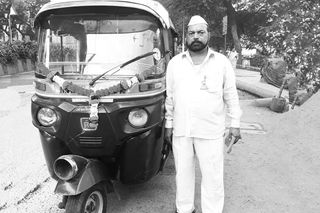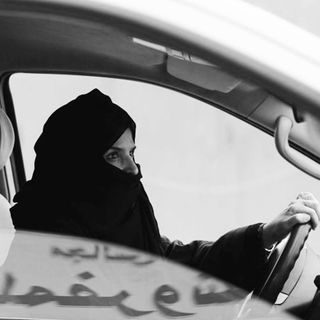
Peripheral Vision: the Rickshaw Driver
“Driving an auto has shown me that all kinds of people exist and that no two customers are the same.”

Our series, Peripheral Vision, explores the untold stories of people we encounter on a daily basis.
I’m Hariman Bhogse and I’m 52. I came to Mumbai in 1979 from a village near Pune called Talegaon. I didn’t study at all, but my parents got me married and that’s when I realized that I needed to do something to sustain my family. When I reached the city, I tried my hand at a lot of different things. I was a gardener for a while, then I worked in different kinds of shops — I was a scrap dealer, then became a helper in a grocery shop.
Then, in 1985, somebody taught me to drive an auto-rickshaw. Since then — that’s about three decades — I’ve been an auto-rickshaw driver. I do have a Heavy Vehicles License, too, but I realized I can’t drive long distances and hence, never took up driving inter-state buses or trucks.
I drive from 7 a.m. to 1.30 p.m. and rest until 4 p.m. Then I drive again till 9 p.m. I don’t limit my driving to certain areas; I go wherever the customer needs to. During the rains, I don’t even take those extra hours to rest; I’m on the roads, helping people reach their destinations from 7 a.m. to 9 p.m. On normal days, I come back home for lunch, but not during the monsoons. I carry lunch with me and stop by at any vada pav stall for a bite and some chai.
Although autos demand less maintenance, I treat mine like a baby. It gives me money — without it, I don’t think I would’ve been able to do anything else. This rickshaw cost me Rs. 2.5 lakh, and while the government loans Rs. 2 lakh, I had to make up the rest, which I’m still struggling to pay for. I had three sons, one of whom passed, and the other two are still studying and applying for jobs. I got my only daughter married and that’s where I had to put in a lot of money. I’ve discouraged one of my sons from getting into the same profession because it’s pointless. But as far as I’m concerned, I’ve spent so many years driving it, that I don’t think I can do anything else.
Related on The Swaddle:
Peripheral Vision: a Bar Housekeeper
And besides, I miss it even when I have to go to my village for a few days. I wash it every morning, and on auspicious days like Diwali, Dhanteras, Dussehra, I worship it before I do the Gods in my house. I’ll put a garland on it, and do an aarti and ensure that everyone in my family pays their respect to it. I’m very particular about its maintenance and ensure that it’s well-oiled at all times. I don’t drive fast or run it into potholes. I’ve seen so many rickshaw drivers drive so rashly, but they don’t realize that they are not only decreasing their vehicle’s life, but also harming their own bodies. Our backs suffer a lot as a result of bad roads and poor suspension.
I would say, driving a rickshaw earlier was better. The earning was less, but our expenditures were equally less. Things weren’t even that expensive. Now, everything is unaffordable. Although rickshaw fares have increased, driving is not stress-free. First, the competition has increased so much, there are so many people in the same business. Plus, with Uber and Ola, it has become difficult to sustain the business. I also did give Uber a thought, but I’d have to invest a lot more than I would end up earning. The metro has also killed our business. Earlier, in the localities that the metro caters to now, either rickshaws would be able to take you, or BEST buses. But now, with fares as low as Rs. 20 and an air-conditioned ride, people prefer the metro over a rickshaw any day. But, I guess, competition is in every business, and everyone’s working hard to keep their own job running.
But I’m concerned with doing my job and running my house. I don’t want to disturb my mental peace. My most memorable day was once, during the monsoons, I helped a pregnant woman and her husband reach in time for her delivery. Even though she was in so much pain, she ensured she took my number. I kept wondering why she was doing that, but once they got back home with the baby, she called me to give me a box of sweets. This profession has shown me that all kinds of people exist: the good, the bad, the nice, the perpetually frustrated, the ungrateful and the happy ones. And I’ve also realized that no two people are the same, so with every new ride, I reset my mental space and customize my mood according to the customer. I’d say I’m used to it. I wouldn’t exchange my life for anything, now, and I’ll continue doing this till I can.
This interview has been condensed and edited for clarity. As told to Anubhuti Matta.
Anubhuti Matta is an associate editor with The Swaddle. When not at work, she's busy pursuing kathak, reading books on and by women in the Middle East or making dresses out of Indian prints.
Related


‘Baby It’s Cold Outside’ Gets an (Unnecessary) #MeToo Rewrite
